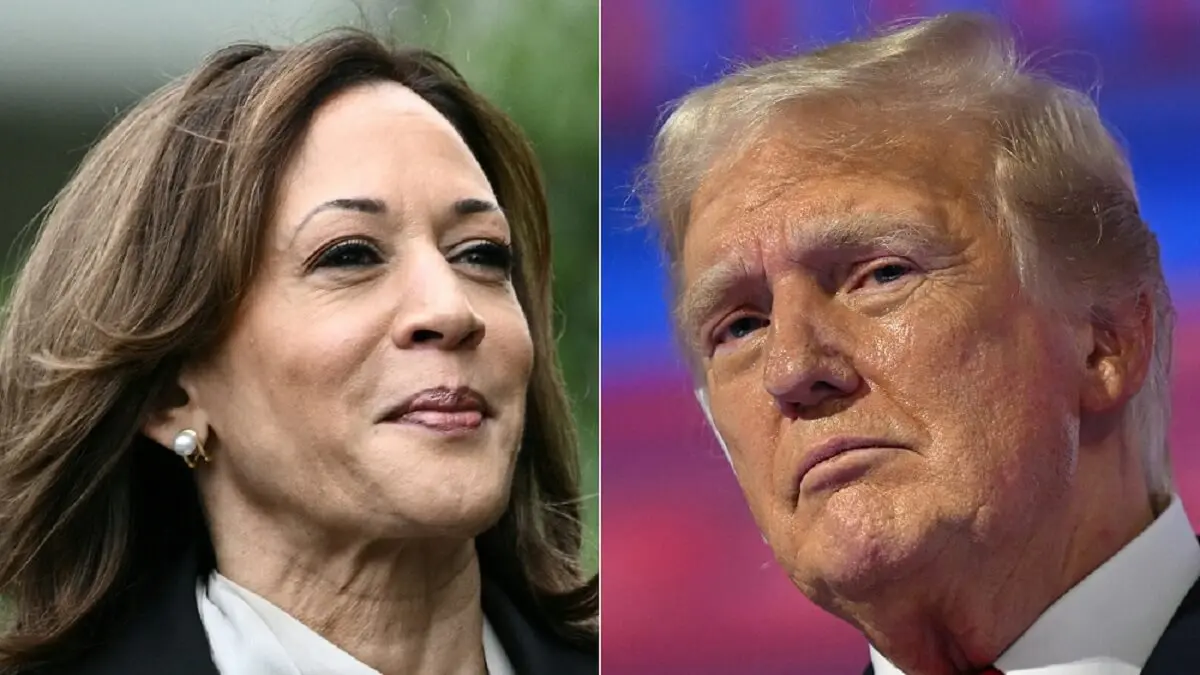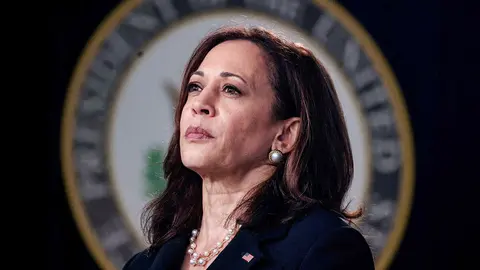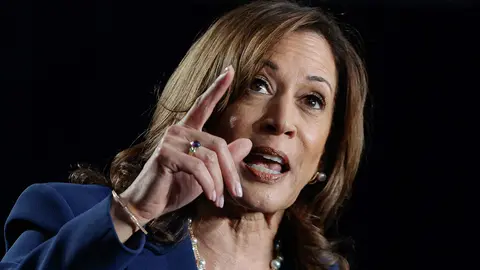Donald J. and Kamala, a matter of accent

But the mathematics of time whose derivative is old age, or who knows if the electoral calculus of history, which sometimes chooses candidates with certain criteria and sometimes indiscriminately rejects the leaders of democracies, pointed Joe Biden to the exit door of the White House on the cover of Time magazine. At the same time he opened the door to a 59-year-old candidate, Kamala Harris, whose name is pronounced with a certain diversity of opinion. A woman hidden in the Vice-Presidential lobby where Lyndon Johnson met in 1963 with the assassination of John F. Kennedy and the Vietnam War, and where George Bush would meet in 1988 with the end of the Cold War and the legacy of President Reagan, whose campaign slogan ‘Make America Great Again’ has now been reissued in a red visor, which may have saved Donald J. Trump's life.
For several years now, analysts of American politics and America's rivals and allies have considered the only possible option for the 2024 presidential campaign to be a contest between two grizzled leaders bent on arguing over the nature of the world order, and also over which of the two hit a golf ball harder. But democratic rationality has once again proved more stubborn than the perverse imaginings of democracy's enemies. Donald Trump has emerged stronger from a violent and murderous attack, and his first message has been one of unity and responsibility. And Joe Biden, a moderate and centrist president, with a satisfactory record on the economy and a strong foreign policy, has stepped aside, so that democracy can continue on its way, even if it has to do without him.
The 2024 campaign now enters a phase of incalculable interest. Kamala Harris has to confirm her candidacy, consolidate her leadership and mobilise an electorate that in part identifies with the processes of global transformation, sustainability and the liberal internationalism of Biden, heir to Wilson and Roosevelt, but which includes other more progressive sectors identified with the social liberalism coined by Obama. Moreover, the vice-president has to recover the strength of a woman's candidacy, seeking the political legacy of secretaries of state such as Madeleine Albright or Hillary Clinton, or of Michelle Obama herself. Too bad for her that the African-American Condolezza Rice was a Republican.
Donald Trump has in his hands the possibility of moderating his discourse, overcoming polarisation and emulating presidents like Reagan and Bush, who lowered international tension through firmness, but used diplomatic mechanisms with their rivals and former enemies, while always maintaining their commitments to their partners and allies. In political, economic and security terms.
Trump's and Biden's presidencies have had very significant different outcomes despite very different approaches and discourses. The Republican focused on revitalising the national productive fabric and took protectionist measures. But he did not promote a dialectic of economic blocs. Biden has focused on the energy transition, but neither has he disrupted traditional production. Quite the contrary.
Under Donald Trump's presidency, the allies of organisations such as NATO remained the same, even if the Republican president asked them for a greater budgetary commitment, as Democratic President Obama had done and as the Biden administration has insistently reminded them. And to add to the argument of continuity in foreign policy, the security strategies of both, contained in the 2017 and 2022 documents, are in no way divergent or contradictory. Rather, they are innovative and realistic in defining a world of competition between powers and a new global reality marked by the impact of technologies and geo-economic challenges.
Whether Donald J. or Kamala Harris's teams will be able to strengthen US leadership in a changing international order will depend on them. And also on changing the course of a world beset by uncertainty and victim to violent confrontation between complex and competing interests. But the change needed is not so much one of US democracy and the liberal and democratic values of the free world. Rather, the necessary change will be the reduction of political polarisation and violence at home and abroad.
The 2024 election campaign may pit a Democratic frontrunner, Kamala Harris, who represents diversity and the values of progress in a society undergoing transformation, against the leader of a Republican party, Donald J. Trump, who represents the values of American leadership in a world order also undergoing reconfiguration. The differences between the two candidates are obvious. And the differences in their visions on social, cultural and domestic policy will also be obvious. But the differences between their proposals on policies such as foreign policy and security will be less so, and will depend, if anything, on where the emphasis is placed.



